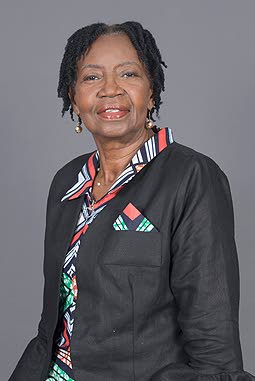Population control and police force in post-emancipation Tobago

Dr Rita Pemberton
FIFTEEN YEARS after the termination of the apprenticeship system and the legislated change of status of the African workers from “slaves” to free workers, the administration of Tobago found it expedient to augment the island’s police force.
Policing had been well established as an essential part of the system of enslavement, which was based on rigid controls over the large, enslaved population and forcing them to accept their servile position.
In Tobago, however, to the shock of the planting community, enslaved resistance was a feature of the period of establishment of sugar plantations. During the 1770s, the island’s enslaved population rose in rebellion against their enslaved status, in the process threatening the survival of the newly established plantations.
The mortified plantation owners took immediate steps to institute systems of control to restrict resistance by the enslaved population. These included organising military defence mechanisms and a system of policing, which both gave authority to planters, managers and other members of the white community on the island to force compliance by the enslaved population.
The first such act, passed in 1835, was to give effect to the provisions of the imperial Emancipation Act; assist the industry of the manumitted slaves; compensate those who were entitled to their services; establish a police service, and provide for building prisons.
Although the establishment of the police force was presented as essential to promote the industry of the newly freed population, there was nothing in the act which made provision for the development of the free workers, while a significant part of the process of policing included building places of confinement and punishment and instituting restrictive vagrancy laws which reflected both their control and punitive impulses, as well as the desire to maintain the distinction between superior and inferior people.
Also, it should be noted that a police law which included accommodation for prisoners was construed as being a part of the compensation to planters who were entitled to the services of the freed population, although under the Emancipation Act, plantation owners were handsomely compensated by the imperial government.
In 1838, planters became very apprehensive. Ruling-class fears were that emancipation would stimulate reprisals which would threaten their social and economic position, and in anticipation, establishing and strengthening a police force was considered urgent.
A second law, in 1843, sought to regulate policing to manage internal security across the island with support from the military element, especially in and around the towns of Scarborough and Plymouth, the locations with the largest estates and the largest concentrations of estates and, of course, the largest concentration of the African population.
Before emancipation, planters served as the policemen on their estates, each of which provided its own prison facilities for those enslaved who were considered “deviant.”
After emancipation, planters, managers, and other officials were automatically drawn into the ambit of the protective services, but in the decade of the fifties, there was a felt need for the intensification of policing. This resulted from the combined effect of three developments in the 1840s: the increase in post-emancipation conflicts between workers and employers; the reluctance of workers to give their labour to the estates; and the hurricane of 1847.
These three developments raised planter concerns about the future of their estates where labour was concerned, especially after the hurricane, when increased labour was required for the recovery effort and planters failed in their bid to obtain support from the imperial government to avail themselves of immigrant labour to increase their labour supply.
The 1850s brought alarm to the planting community with the announcement that, in a cost-cutting measure, the imperial government was terminating its military presence on the island. Both assembly and council expressed concern that removing the troops from the fort would have serious implications for security, in addition to leaving the island vulnerable to both internal and external threats, the cost of which the island was unable to bear, particularly considering the recent hurricane damage.
Since that was a final decision, all efforts were turned to strengthening the island’s police force which, ironically, meant increased demand on a treasury which already endured decreasing revenue and faced challenges with meeting the cost of administration.
The act of 1854 sought to amplify the Tobago Police Force with the appointment of an enhanced police administration under an Inspector General of Police, who was supported by a superintendent sergeant, two sergeants, six corporals and 124 privates. In addition, the police force was supplied with “medical men” as required, to attend to the health needs of police and prisoners and for whom the Inspector General was responsible for obtaining the required medical supplies.
Police stations were to be established across the island, policemen given powers of arrest, and the mandate of the police unit was to keep the peace. The duties of policemen also included attending to justices of the peace when they were in session and issuing warrants and orders for all matters which came before the justices of the peace. Policemen were protected from prosecution for matters related to actions taken while carrying out their duties.
While the new law stipulated the process for appointing police officers under the revised structures, those who had previously served as policemen on the island were able to enrol for positions when the new law took effect. Given the limited number of white men on the island, this meant that, apart from numbers, there was little change in the constitution of the Tobago Police Force.
In both its initial and revised forms, it was intended to bolster plantation-owner control over the freed Africans, maintain the social order of white superiority and African subjectivity, and maintain planter-supporters as part of the law-enforcement process.

Comments
"Population control and police force in post-emancipation Tobago"